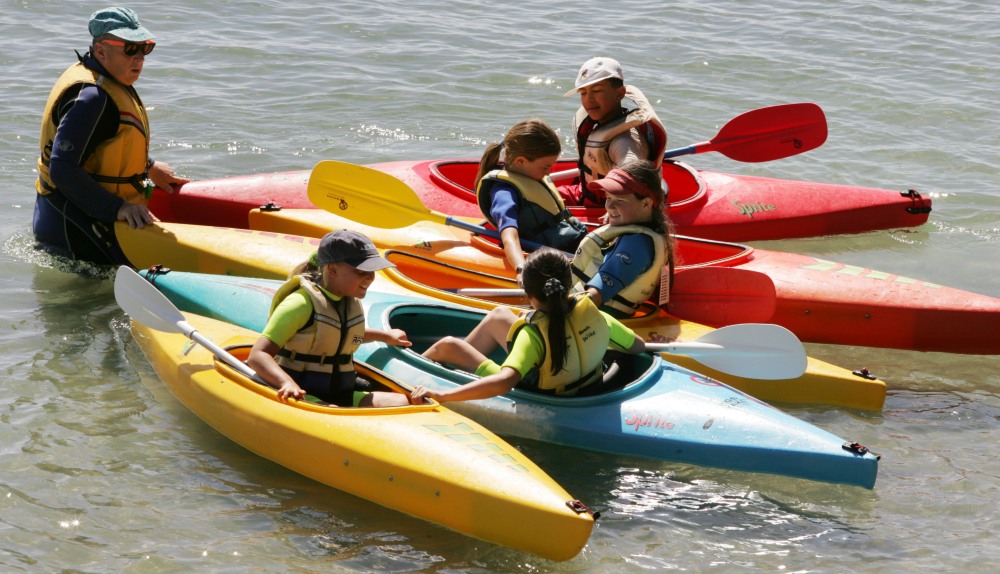The problem:
1. The framework classification of outdoor education providers – Under the MBIE Covid-19 Guidance outdoor education providers are strongly incentivised to require vaccine passes of their clients, facing restrictions in numbers or activity.
2. Access of students to outdoor education – Schools are not permitted to discriminate on the basis of vaccination status. Therefore schools face a policy dilemma when planning outdoor education delivered by an outside provider. They are choosing to cancel their outdoor education plans, which results in students missing valuable learning opportunities and the providers losing much (or all) of their business.
The people of Aotearoa New Zealand place a unique connectedness to the outdoors. In Te Ao Māori, everything is connected to the land, the sky, the sea, and the forest.
We value outdoor adventure, and we particularly value the shared experience aspect – a group of friends all knowing what it feels like to sleep under the stars, swim in the river, or paddle away from the beach… together.
It is in sharing and remembering these experiences that they are transformed into life-long learning opportunities that help to shape and define who we are.
Many New Zealand rangatahi only access these things through school outdoor education and the loss of these opportunities will have an extensive and lasting impact.
As New Zealand starts to cautiously re-open under the Covid Protection Framework, a whole sector is at risk. The current requirements for outdoor education providers place their survival under threat. The Covid Protection Framework means that for most to operate, they will need to require students to have a My Vaccine Pass.
This means students without passes will be left at school and miss these valuable, in some cases life changing, experiences. Schools who don’t wish to single out and leave behind students are choosing to cancel their outdoor education altogether, meaning all the students miss out.

For much of the past two years, our young people from ages 5 to 18 have had schooling interrupted, face-to- face contact with friends or family removed, and sports or creative outlet opportunities lost.
Outdoor education through school camps allows students to rebuild confidence and reconnect with others, learn life skills and resilience, and supports hauora, mental and physical health.
Also at risk are the NCEA assessments of the senior students, outdoor education assessment cannot be replicated at school. School groups on school camp typically have students who are from a single cohort, undertaking activities, eating, and sharing accommodation together. They typically do not mix with others during their stay.
In essence, this is a mini lockdown where the total possible interactions with others remain static, with the added benefit of most activity being held outdoors. Both school staff and provider staff are required to be vaccinated.
The hypothesis that outdoor education at camps is somehow of greater risk than normal school is not correct. The benefits of personal and interpersonal growth far outweigh any perceived risk. The guidance and advice from government is not clear, different departments offer conflicting advice.
Advice to school boards and principals proposes a precautionary approach, often resulting in no approval of outdoor education camps and Education Outside the Classroom (EOTC) activity. The Covid Protection Framework settings hamper outdoor education sector capability. Centres are no longer eligible for the wage subsidy yet without school groups they are unable to pay the bills.
These providers need to survive to continue to support schools to deliver outdoor education and EOTC into the future. Pre-Covid, hundreds of thousands of school students experienced outdoor education and EOTC as part of their education. This was enabled by the professional services of our sector, delivered by experienced, skilled, and passionate educators. ORCA providers inform best practice through safety management plans, child protection policies, and youth development practice. Examples include keeping school groups separate, excellent implementation of public health measures, and staff practices ensuring successful delivery throughout Alert levels 1 and 2.
For the sake of youth wellbeing, we want to safeguard against capability loss in the outdoor education sector. Its continued viability will provide rangatahi their right to connection with the natural environment and the many taonga of the sea, the mountains, the bush and the land.
We must provide the opportunity for all young people to push their boundaries, grow their confidence, become more independent, and share life-long memories with their peer group.
In New Zealand, no child should be denied access to the mental and physical benefits of outdoor education. Please provide certainty to schools and providers planning school camps and outdoor education for 2022.
This will enable the retention of staff, appropriate recruitment, and the continued servicing of rangatahi through outdoor education and EOTC in 2022 and beyond.
Request: Implement well-considered changes to the Covid Protection Framework to allow all school students to access curriculum learning experiences wherever those experiences occur – on the school site or with an outdoor education provider.
Question: Why can school students without vaccine passes attend school or tertiary institutes, but not curriculum-related offsite education with external providers?
Outdoor Recreation Council of Aotearoa www.orcaotearoa.nz








